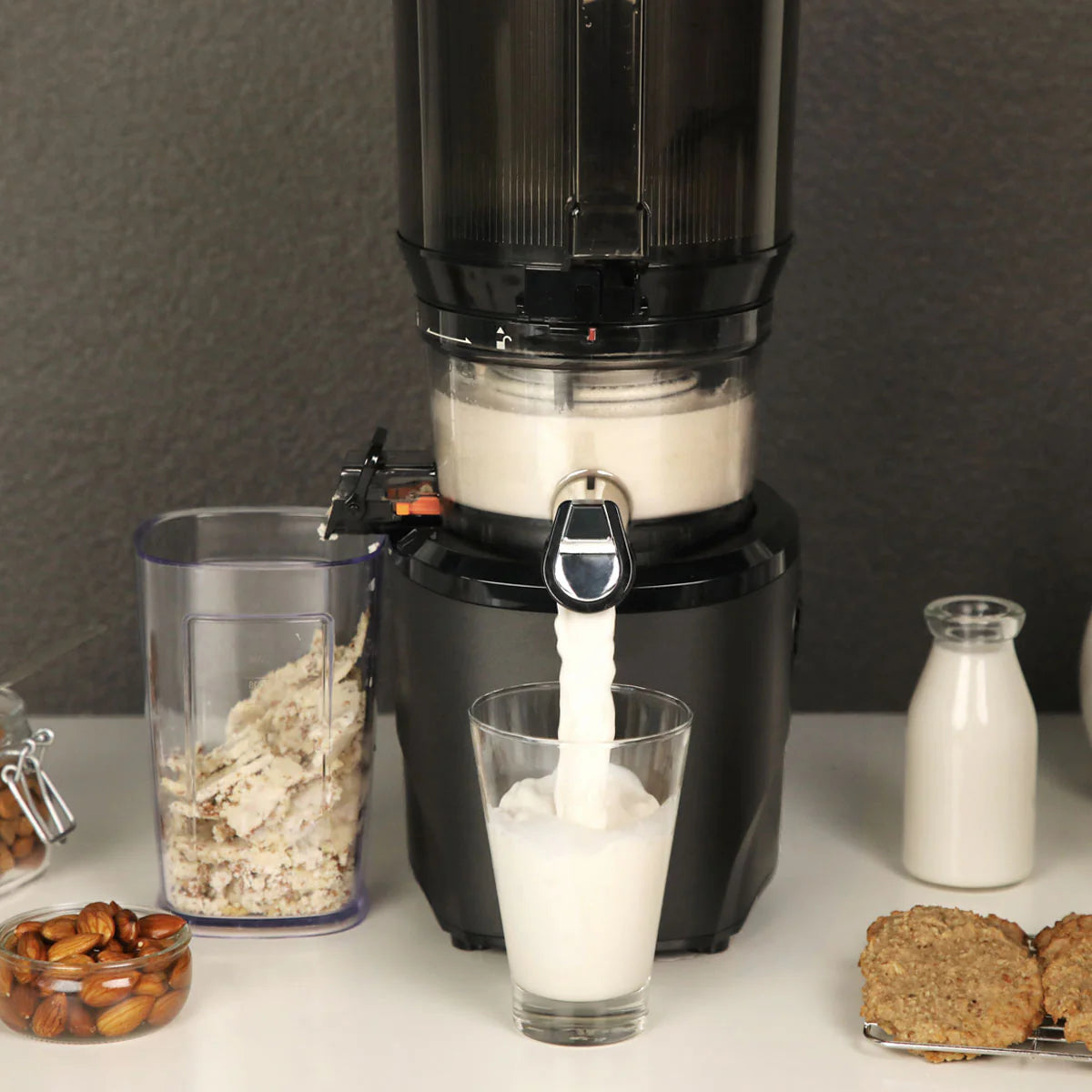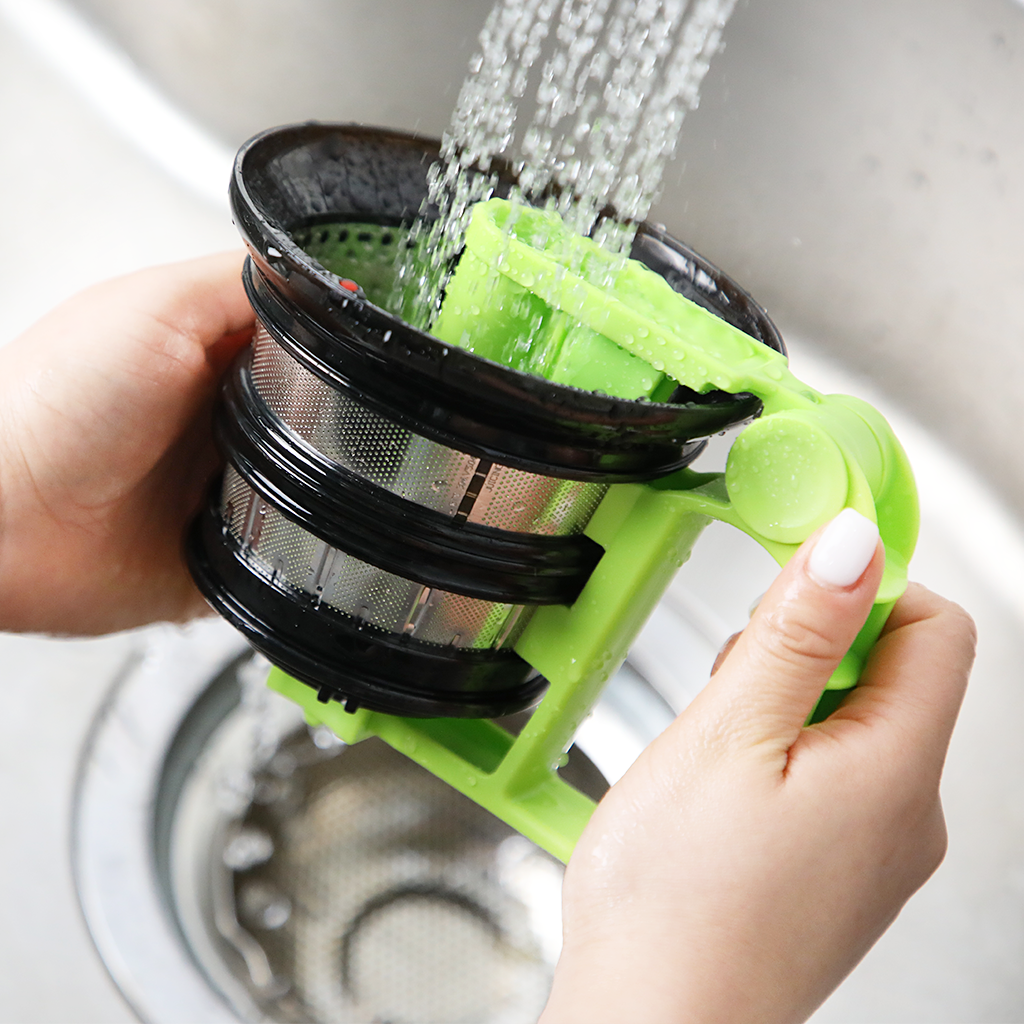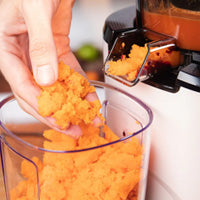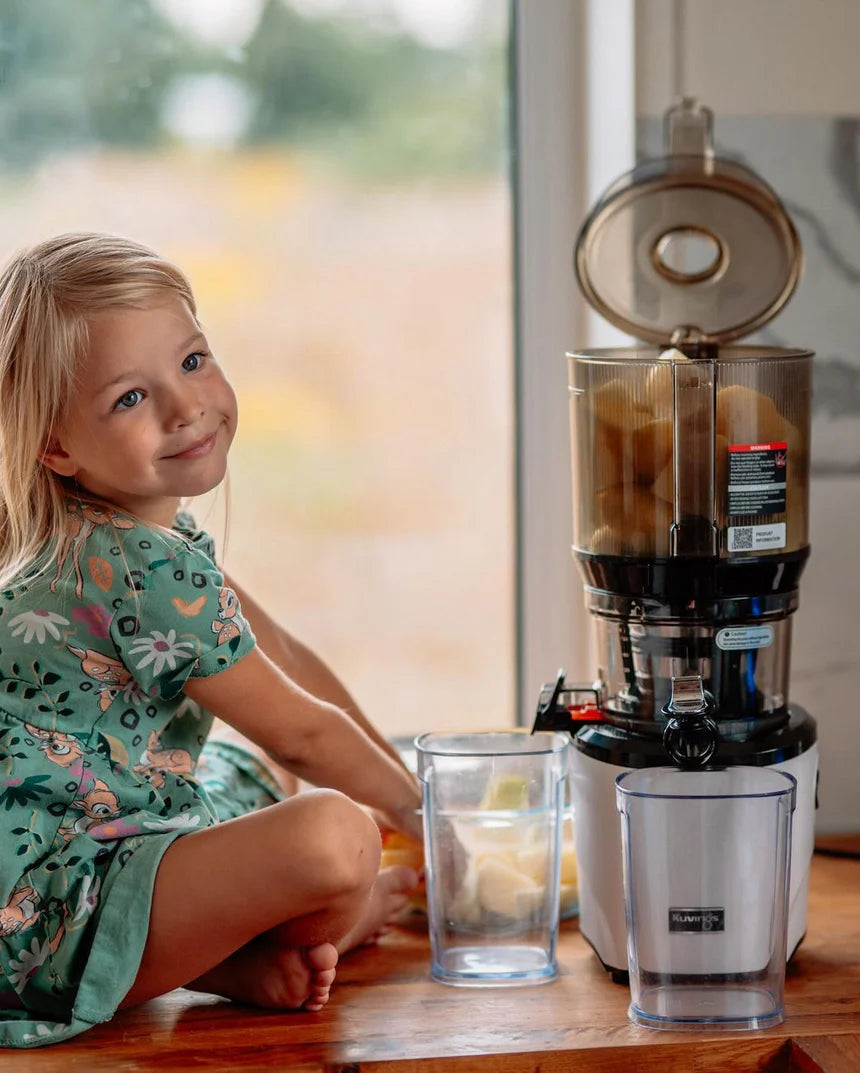Natural sugar over processed sugar any day! To create a pure juice with minimal sugar content, it is advisable to utilize low-sugar fruits, refrain from using high-sugar fruits, and primarily focus on juicing vegetables.
Juicing has become a popular method to improve and maintain overall health. However, the sugar content in juices, specifically fruit juices, raises concerns about its impact on well-being.
Natural Sugar vs. Processed Sugar
Pure fruit and vegetable juices contain sugar due to the sugar in their whole counterparts. However, the sugar in pure juice is different from the sugar in unhealthy “junk” food and beverages. Foods and drinks like candy and soda are made up of processed sugars, which offer little nutritional value, are high in unhealthy fats and calories, contribute to weight gain, and pose risks to overall health.
In contrast, pure juices contain natural sugars, nutrients, vitamins, minerals, and antioxidants. Between the two, natural sugars are a healthier choice as they're digested more slowly, help maintain stable blood glucose levels, and support a balanced metabolism.
How To Make Low-Sugar Juice
While it's healthier to consume natural sugars over processed sugars, it’s still important to be mindful of your sugar intake and consume sugar in moderation. If you want to create pure juices low in sugar, try following these tips.
-
Use low-sugar fruits
-
Avoid using high-sugar fruits
-
Opt for vegetables over fruits
We encourage speaking to your doctor or practitioner before juicing if you have diabetes or any other minor or major health issues.
1. Use low-sugar fruits
The amount of natural sugar in fruit varies. Choose fruits with lower natural sugar content to make a low-sugar juice with fruit. The following are some low-sugar fruits that work for juicing:
|
Apple |
Lime |
2. Avoid using high-sugar fruits
Likewise, it is advisable to refrain from using fruits with high sugar content or incorporate them in small quantities when making juices. Be mindful of these high-sugar fruits:
|
Banana |
Mango |
3. Opt for vegetables over fruits
Vegetables are a great choice for juicing as they contain lower amounts of natural sugars compared to fruits. It’s recommended to focus primarily on incorporating vegetables to reduce sugar intake from juices. Here is a comprehensive list of vegetables that are ideal for juicing:
|
Arugula |
Lettuce |

The content of vitamin C in the juice prepared by a slow juicer is 5.2 times higher than the vitamin C in the juice of a centrifugal juicer. Oxidation is another reason for low vitamin C levels

Flavonoid : Juice from a slow juicer contains 1.5 times more flavonoids than fruit and juice from a centrifugal juicer

Slow juicer juice has the highest fiber content.

The juice extracted from the slow juice extractor has the highest content of flavonoids as a result of the juice extracted from grape
For beginner juicers, transitioning to purely vegetable juices can be challenging initially due to taste preferences. A helpful tip is to begin by incorporating low-sugar fruits into your juices and gradually reducing or eliminating them as you acquire a taste for vegetable-based juices. With time, you'll find yourself enjoying 100% vegetable juice.
Super Green Juice Recipe
In the meantime, here's an enticing super green juice recipe featuring a blend of vegetables and low-sugar fruits:
Ingredients
- 200g spinach
- 4 sticks of celery
- 1 bunch of parsley
- 2 apples
- Ginger to taste
- Lemon to taste
____
REFERENCES:
https://www.cancercenter.com/community/blog/2022/10/natural-vs-refined-sugars-what-is-the-difference
https://chear.ucsd.edu/blog/understanding-natural-versus-added-sugars
https://www.mdanderson.org/cancerwise/natural-versus-refined-sugar--what-s-the-difference.h00-159465579.html
https://health.unl.edu/sugar-fruits-what-matters-health
https://www.healthline.com/health/best-low-sugar-fruits
https://www.medicalnewstoday.com/articles/320078#eight-low-sugar-fruits
https://www.realsimple.com/health/nutrition-diet/high-sugar-fruits
https://www.healthline.com/nutrition/best-vegetables-to-juice
https://www.cleaneatingkitchen.com/best-vegetables-to-juice/
https://sprintkitchen.com/juicing-fruit-increase-sugar/


























































